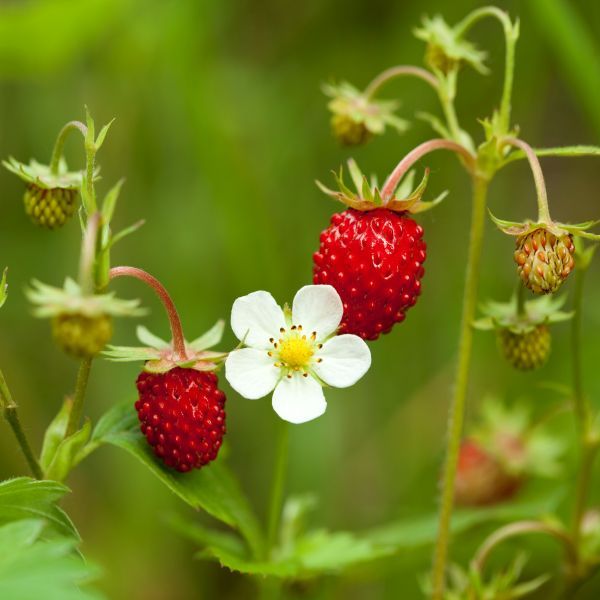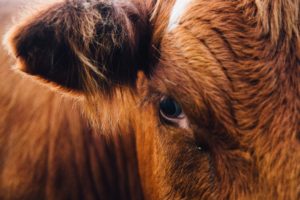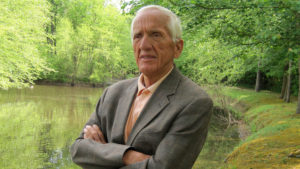Have you heard of the wonderful book “Braiding Sweetgrass: Indigenous Wisdom, Scientific Knowledge, and the Teachings of Plants” by Robin Wall Kimmerer? It is part science and part ancient knowledge of indigenous people. One of the author’s big ideas is that plants and animals are our oldest teachers. Here she talks about the differences between gifts & commodities, and the origin of the term “Indian Giver”.
Excerpts: “Gifts from the earth or from each other establish a particular relationship, an obligation of sorts to give, to receive, and to reciprocate. The field gave to us, we gave to my Dad, and we tried to give back to the strawberries. When the berry season was done, the plants would send out slender red runners to make new plants. Because I was fascinated by the way they would travel over the ground looking for good places to take root, I would weed out little patches of bare ground where the runners touched down. Sure enough, tiny little roots would emerge from the runner and by the end of the season there were even more plants, ready to bloom under the next Strawberry Moon. No person taught us this—the strawberries showed us. Because they had given us a gift, an ongoing relationship opened between us.
Wild strawberries fit the definition of gift, but grocery store berries do not. It’s the relationship between producer and consumer that changes everything. As a gift-thinker, I would be deeply offended if I saw wild strawberries in the grocery store. I would want to kidnap them all. They were not meant to be sold, only to be given. Hyde reminds us that in a gift economy, one’s freely given gifts cannot be made into someone else’s capital. I can see the headline now: “Woman Arrested for Shoplifting Produce. Strawberry Liberation Front Claims Responsibility.”
Lewis Hyde wonderfully illustrates this dissonance in his exploration of the “Indian giver.” This expression, used negatively today as a pejorative for someone who gives something and then wants to have it back, actually derives from a fascinating cross-cultural misinterpretation between an indigenous culture operating in a gift economy and a colonial culture predicated on the concept of private property. When gifts were given to the settlers by the Native inhabitants, the recipients understood that they were valuable and were intended to be retained. Giving them away would have been an affront. But the indigenous people understood the value of the gift to be based in reciprocity and would be affronted if the gifts did not circulate back to them. Many of our ancient teachings counsel that whatever we have been given is supposed to be given away again.
What I mean of course is that our human relationship with strawberries is transformed by our choice of perspective. It is human perception that makes the world a gift. When we view the world this way, strawberries and humans alike are transformed. The relationship of gratitude and reciprocity thus developed can increase the evolutionary fitness of both plant and animal. A species and a culture that treat the natural world with respect and reciprocity will surely pass on genes to ensuing generations with a higher frequency than the people who destroy it. The stories we choose to shape our behaviors have adaptive consequences.
In the old times, when people’s lives were so directly tied to the land, it was easy to know the world as gift. When fall came, the skies would darken with flocks of geese, honking “Here we are.” It reminds the people of the Creation story, when the geese came to save Skywoman. The people are hungry, winter is coming, and the geese fill the marshes with food. It is a gift and the people receive it with thanksgiving, love, and respect.
But when the food does not come from a flock in the sky, when you don’t feel the warm feathers cool in your hand and know that a life has been given for yours, when there is no gratitude in return—that food may not satisfy. It may leave the spirit hungry while the belly is full. Something is broken when the food comes on a Styrofoam tray wrapped in slippery plastic, a carcass of a being whose only chance at life was a cramped cage. That is not a gift of life; it is a theft.
In material fact, Strawberries belong only to themselves. The exchange relationships we choose determine whether we share them as a common gift or sell them as a private commodity. A great deal rests on that choice. For the greater part of human history, and in places in the world today, common resources were the rule. But some invented a different story, a social construct in which everything is a commodity to be bought and sold. The market economy story has spread like wildfire, with uneven results for human well-being and devastation for the natural world. But it is just a story we have told ourselves and we are free to tell another, to reclaim the old one.”




